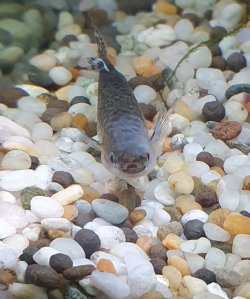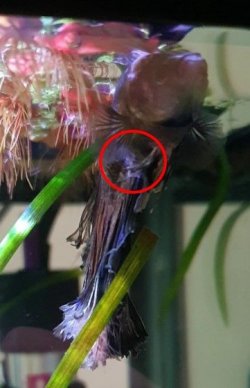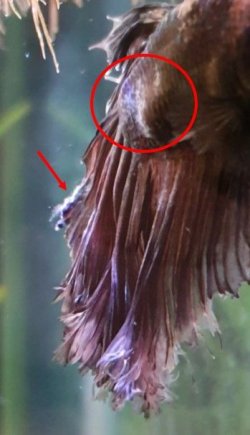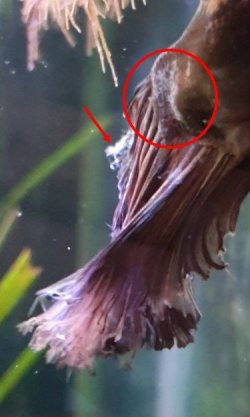Hi all,
I have just noticed a milky cloudy stuff partially covering the head of a guppy fish, it's also on the body and tail fin of my betta fish. They are also quite lethargic and are sitting on the substrate (especially the guppy).
Though after some googling and youtubing, I'm pretty sure the culprit is velvet disease. Some pics attached below, was tricky to get in focus pic of my betta, he can't sit still
Most of the info I read/watched suggests using medication with formaldehyde and malachite green, or aquarium salts.
I'm going on holidays next Thursday for christmas and new years and am leaving my tanks in my mum's care, but she doesn't know much about fish care.
I would like to knock this on the head before I go, so I have some AquaOne broad spectrum remedy that has malachite green in it and aquarium salts. What I would like to know is:




Thank you in advance!
I have just noticed a milky cloudy stuff partially covering the head of a guppy fish, it's also on the body and tail fin of my betta fish. They are also quite lethargic and are sitting on the substrate (especially the guppy).
Though after some googling and youtubing, I'm pretty sure the culprit is velvet disease. Some pics attached below, was tricky to get in focus pic of my betta, he can't sit still
Most of the info I read/watched suggests using medication with formaldehyde and malachite green, or aquarium salts.
I'm going on holidays next Thursday for christmas and new years and am leaving my tanks in my mum's care, but she doesn't know much about fish care.
I would like to knock this on the head before I go, so I have some AquaOne broad spectrum remedy that has malachite green in it and aquarium salts. What I would like to know is:
- Should I treat the whole tank? (guppies and a betta, couple mystery snails but I can move them to another tank, live plants)
- Water change before I treat the tank?
- Is using AquaOne broad spectrum remedy and aquarium salts a good course of treatment? Or would you recommend something better/more effective?




Thank you in advance!

